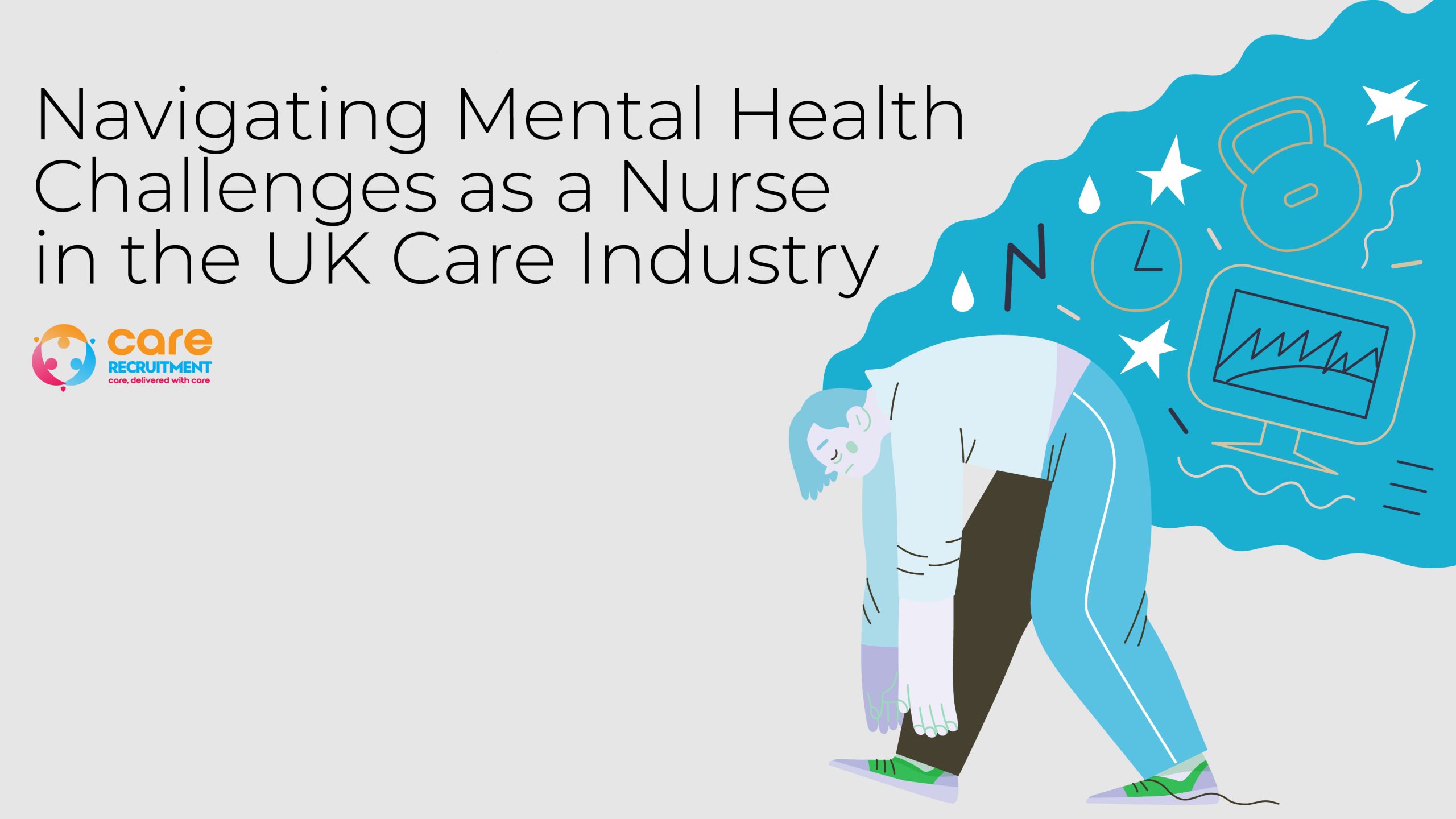
As a nurse in the UK care industry, you play a vital role in caring for the physical and mental health of your patients. However, mental health challenges in nursing is a topic that has been studied, yet overlooked for may years. The demands of the job can be challenging, and it is not uncommon for nurses to experience mental health issues as a result of their work. In this blog post, we will explore the mental health challenges in nursing in the UK care industry and provide some tips on how to navigate these challenges.
The UK care industry is a demanding field, and nurses are often required to work long hours and handle high-stress situations. This can lead to mental health issues such as anxiety, depression, burnout, and post-traumatic stress disorder (PTSD). According to a survey by the Royal College of Nursing (RCN), one in four nurses in the UK has considered leaving the profession due to mental health issues.
In addition, the COVID-19 pandemic has placed additional stress on nurses, with many experiencing increased workloads, trauma, and burnout. The pandemic has also led to a higher risk of infection for nurses, which can cause anxiety and stress.
The importance of identifying and solving mental health challenges in nursing can have a direct impact on the day-to-day services delivered to patients by nurses. If you are a nurse in the UK care industry, it is important to prioritise your mental health and take steps to navigate the challenges of the job. Here are some tips on how to do this:
One of the most important things you can do to navigate mental health challenges as a nurse is to seek support. This can be in the form of talking to a trusted colleague, seeking counseling, or speaking with a mental health professional. Many employers in the care industry offer employee assistance programs (EAPs) that provide confidential counseling and support services to employees.
Self-care is an important aspect of maintaining good mental health, and nurses should prioritize self-care activities such as exercise, meditation, and hobbies. Taking time for yourself can help you to relax, recharge, and cope with the demands of the job.
As a nurse, it can be easy to get caught up in the demands of the job and neglect your own needs. It is important to set boundaries and prioritize your own wellbeing. This may mean saying no to extra shifts, delegating tasks to colleagues, or taking time off when you need it.
Staying connected with colleagues, friends, and family can help you to maintain good mental health. Social support is an important aspect of coping with stress, and having a support network can help you to feel less isolated and overwhelmed.
Many employers in the care industry offer training and development opportunities for their employees. This can include mental health awareness training, stress management workshops, and resilience training. Taking advantage of these opportunities can help you to develop the skills and knowledge you need to cope with the demands of the job.
Mindfulness is a practice that involves being present in the moment and focusing on your thoughts and feelings without judgment. Practicing mindfulness can help you to cope with stress and anxiety, and there are many mindfulness resources available for nurses, such as apps, podcasts, and online courses.
Navigating mental health challenges in nursing in the UK care industry can be challenging, but it is important to prioritize your mental health and take steps to cope with the demands of the job. Seeking support, practicing self-care, setting boundaries, staying connected, taking advantage of training and development, and practicing mindfulness are all important strategies for maintaining good mental health as a nurse. Remember that it is okay to ask for help and prioritize your own wellbeing, and that there are many resources available to support you.